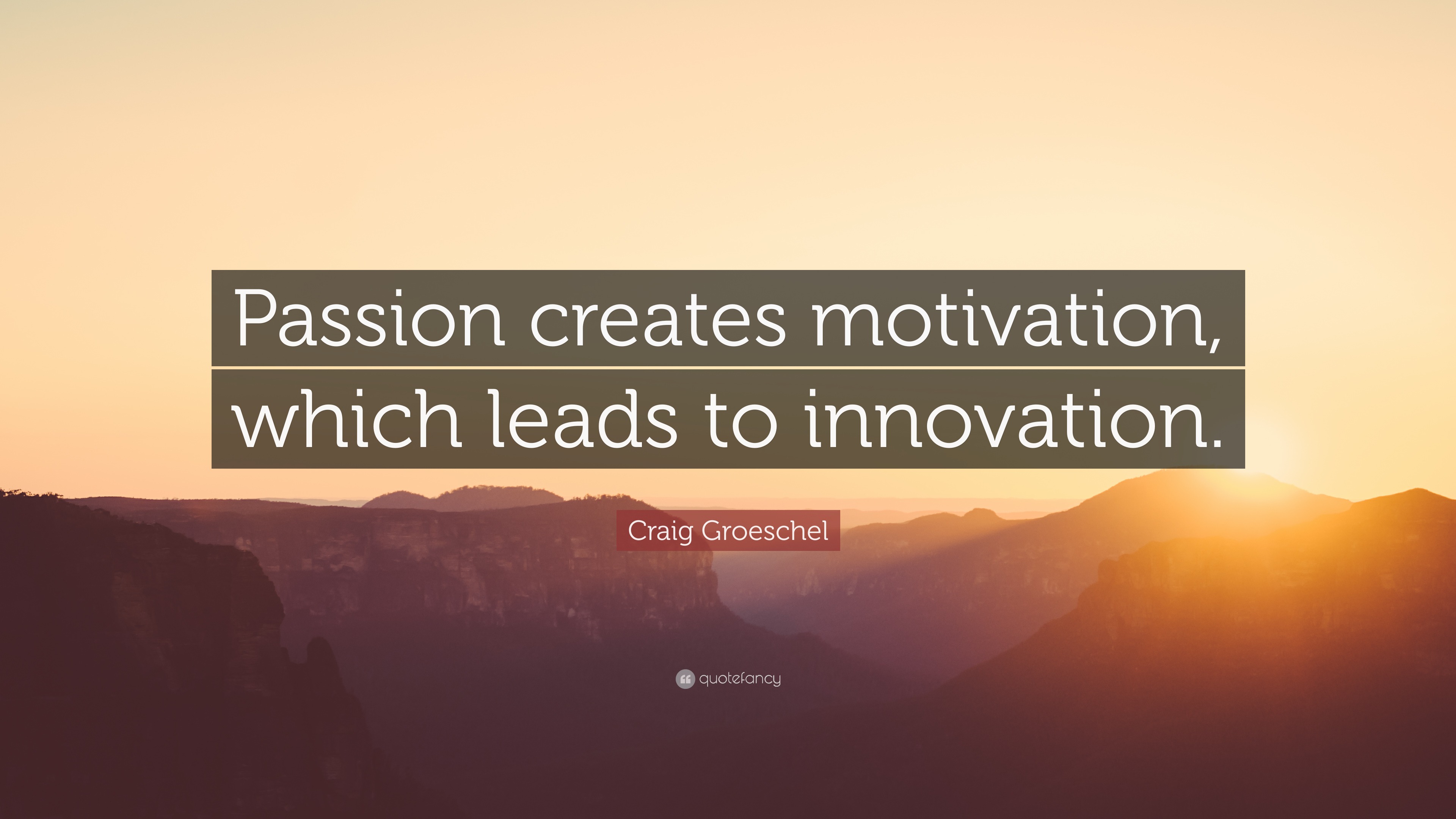- Passion And Motivation Quotes
- Passion And Motivation Difference
- Passion Vs Motivation
- Passion And Motivation Entrepreneur
It turns out that for many athletes attempting to maximize their athletic abilities, learning sport skills is the easier task compared to developing the focus, motivation and resiliency needed to succeed. Put another way, learning a sport skill (i.e. to throw a curve ball or accurately shoot a basketball) is simpler than developing daily motivation, or implementing stress coping skills to deal with frustration and adversity. Mental toughness is perhaps the most important set of skills an athlete can develop in order to maximize potential — even if dedicated training in this area is sometimes ignored or overlooked.
I like to use the word passion interchangeably with words like determination, conviction, and love. Passion is a strong desire that can get you to do amazing things. Passion is an emotion to be acted upon. Without action, passion yields no worthwhile results. Passion is the fuel in the fire of action. According to this prominent neuroscientific theory, you have the power to create motivation yourself, and the art of finding this passion in life lies entirely in your actions and your choice of.
Passion & purpose
Successful athletes often have a passion and purpose for what they do — they are dedicated to their goals, and have specific goals they actively pursue. It is passion and purpose (intrinsic motivation) that helps us overcome life obstacles, focus on our goals, and outwork the competition. When you love what you do, what looks like work to others is simply an enjoyable activity to you. This is why passionate athletes are often the first ones to practice, and the last ones to leave.
I believe we all have passion and purpose in our lives, even if we are not yet clear what things in life prompt us to act on these qualities. Unfortunately in sports, not every athlete has passion and purpose for playing their sport — while some do, many play because they are good at the sport, or because others in their life (i.e. parents) expect them to play. While there is nothing wrong with playing sports without passion and purpose, I believe it limits athletes from reaching their full athletic potential. Many coaches and parents involved in youth sports struggle with this concept, as they see the natural talents some kids possess, but don’t see the “heart” and motivation suggesting intrinsic motivation.
- Orange calcite has a beautiful soft energy that resonates with motivation, willpower and success. It’s the Stone for Creativity and, as well as helping you to tap into your talents, will clear stagnation or apathy. This will boost your ambition and confidence, so you can reach your true potential. This crystal is also an energy amplifier.
- Never leave your true path. “No good can ever come from deviating from the path that you were.

Athletes with passion and purpose often submerge themselves in the process of their training. Of course, they may complain under the hot sun of a summer football workout, but in the big picture they appreciate all the hard work that goes into excelling in their sport. To be clear – having passion and purpose does not imply that athletes will love every moment of training, but instead suggests that they have the heart and motivation to push through the tough times.
When athletes do not have passion and purpose, the “holes in their game” tend to show through during tough times. Take for example when an athlete is playing well – everything is great and the athlete seems to play effortlessly. But what happens when a slump occurs? Without passion and purpose, the typical response is to give in to the pressure and stress, and/or begin to point fingers away from oneself and onto just about anything else (i.e. the coach, referee, other team, weather, etc).
When athletes have passion and purpose, they quickly move through tough times and stay hungry for the next day. Their resiliency is seemingly hard-wired into their DNA, and they understand and accept that they will take their lumps along their way to greatness. Stress and failure are actually accounted for in the passionate athletes mind, and therefore quickly (and successfully) dealt with efficiently.
Keep an eye out for your child’s passion & purpose
Passion And Motivation Quotes
While it’s debatable whether you can teach passion and purpose, you can look for it. If you are a parent, take note of the things your child loves to do – what gets him up early in the morning and keeps him up late at night? Some of you reading this today can attest you see it in athletics, while others reading this may come to the conclusion that while your child is a pretty good athlete, she may not have that never-say-die commitment needed to reach her full athletic potential.
As a clinician who regularly sees athletes, its pretty obvious the ones I meet with who are completely devoted to their training, versus those who are pretty good at their sport but not necessarily passionate about it. Neither is right or wrong, good or bad; but the differences are quite stark and are usually good predictors of which athlete will stay in his sport longer (and more likely succeed in the long run).
Passion And Motivation Difference
Final thoughts
Passion Vs Motivation
Finding your calling in life is both exciting, and a catalyst to assist in maximizing human productivity. For athletes, learning about what makes them go is a big part of athletic success, especially during those times of stress and adversity. If you are a parent or coach, take time to talk to kids about their passion and purpose, and help them align their thinking and behaviors so that they are congruent to those goals.
Passion And Motivation Entrepreneur
athletic committment, mental toughness, Sport Psychology